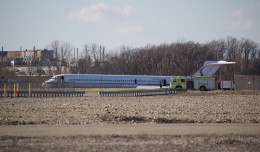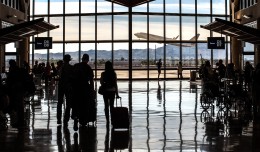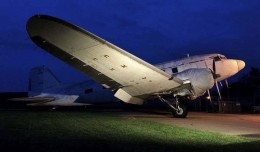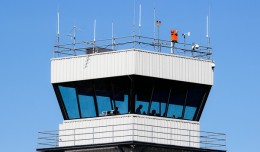Anytime there is an aircraft accident or incident, pilots have to sit back and piece together what the media has to offer regarding the facts just like everyone else. We get a piece of information here and there that makes sense, and we methodically pull it together in our minds. We close our eyes and see what could’ve happened. Sure, we speculate, but we try and do it without judgement. We picture ourselves in the pilot seat dealing with the same emergency and we can see what happened and why the error occurred. We do that so we can learn and make sure it never happens again. Pilots compartmentalize past accidents into knowledge.
When we hear that it was a pilot who purposely drove the aircraft into the ground, our anger runs deeper than the rest. It’s an anger that is driven by the ultimate professionalism of piloting. It’s a betrayal of a profession that is more than just a job, it’s an immersion lifestyle so profound it changes you from a person to a pilot. There are countless people who would make excellent pilots, but life’s barriers stop many from reaching a pilot seat. It’s enormously expensive, takes years to get the ratings and hours needed, and you have to have a Bachelor’s Degree. Beyond that, you need the self-discipline to dedicate every aspect of your life to this profession. For someone to use this coveted pilot position to hurt people makes every pilot tremble with anger.
Suicide is taking your own life. Driving an aircraft, filled with friends and family, into the ground on purpose is beyond evil. Pilots spend their lives trusting the person sitting next to them and the passengers, in return, have to trust the pilots. Once a pilot makes it to a commercial airline in the United States, they’ve had to prove themselves for years with countless tests, check rides and written exams. To be a pilot, you have to really want to be a pilot. There have been other pilot suicides. Egypt Air Flight 990 may be the most infamous, but with the recent Germanwings crash, there is a new factor to the equation which, for a pilot in the U.S., is hard to swallow.
If the reports are true, the first officer who did this horrific act, only had 630 hours of flight time. In the U.S., we’d consider this just getting started in aviation. That this first officer was at the controls of an A320 is bizarre. Of course there are thousands of excellent pilots with only 630 hours, but no matter how good they are, they haven’t proven themselves in all the flight conditions yet. Most U.S. pilots have to work their way up to the airliners and it takes many years and thousands of hours. But, the most important aspect of this low time pilot is that other crew members haven’t had the opportunity to see what psychological symptoms might’ve indicated a potential problem. While many people who commit suicide never give an indication that it was even a thought, spending time in a close quarters crew environment often gives signs, but with only 630 hours, there wasn’t time to find out. Despite the frustration for up and coming pilot, the minimum of 1500 hours for the right seat of an airliner in the U.S. has more benefits than drawbacks.
So, what happens when a pilot has to leave the cockpit during flight? In the United States, pilots must be in their seats for the takeoff and landing phases of flight. Pilots spend 99.9% of their time in their seats, but physiological reasons (okay, we have to use the bathroom) makes us get out the cockpit door. When one pilot has to leave their seat, the other pilot dons their oxygen mask and takes over flight and communication duties. A flight attendant is also allowed to sit in the empty seat. Of course, they don’t fly or touch anything, but it’s another set of eyes and ears and they’re also there in case the flying pilot has an issue like a medical emergency. The Germanwings pilot definitely had an “issue” and if only there had been a flight attendant inside to open the door, we might not be reading about it.
There has to be security for the cockpit. 9/11 proved that. So the industry overshot the correction and now made it possible to keep a captain locked out temporarily. One feasible solution is to make sure another crewmember remains inside the cockpit. I don’t think the flight attendants would mind coming up to the cockpit since they do it anyways, and it’s already company policy at many airlines. Pilots get tired of talking to each other after hours of boring holes in the sky anyways. They would love it if the flight attendants came up and stayed a few minutes. Sure, this first officer might have just decided to try and harm the flight attendant to accomplish his goal, but most of the flight attendants I know would have kicked the first officer’s behind. At the very least, it would have bought the captain a few more minutes to get inside the cockpit.
Pilots around the world are shaking their head in sorrow. There will be erroneous assumptions and misinformed speculation, it’s all part of understanding what happened. Just know that pilots transform themselves into pilots through years of dedication, focus and passion for aviation. The first officer who did this was not a “pilot”.
Erika Armstrong has been in aviation for 25-years. From the front desk of an FBO to the captain’s seat of an airliner, she’s experienced everything aviation has to offer. If you have comments or questions, she can be reached at [email protected].







